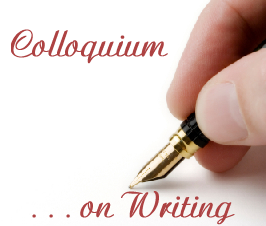
I am delighted by the vigorous debate that my articles have inspired over the past couple of weeks. From such enthusiastic conversation, we all learn a great deal, not to mention the fact that feedback lets us know that our writing is being read. As writers, we all strive for an engaged, interested audience, of course.
Several bloggers have taken me “to task” concerning my stance on “strong,” for lack of a better term, language. While I have read all commentary with great interest, I cannot, in good conscience, claim that I have changed my mind. On the contrary, the ensuing debate has caused me to think a great deal about the issue and arguments over the past week. But my convictions are even stronger today than a week ago.
Why? Because the word that compelled me to write last week is a gender-specific form of hate speech. Anyone who claims otherwise is either lying or misinformed. Using terms that describe parts of human anatomy in a pejorative manner espouses and connotes disdain, loathing, and revulsion for other human beings.
Frankly, I don’t care about the historical origins of the word. (Ironically, in this case, historical context confirms the gender basis and bias of the term in question.) I care about the context in which the language is being used in this culture in 2007 and what meanings are ascribed to it.
Moreover, I do not believe that “conceit” fuels my belief that a writer should research his/her audience and develop an understanding of the manner in which words are used and understood by those who will be reading them. It is neither arrogance nor a desire for “political correctness” that drives me to conclude that a responsible writer will use profanity or vulgarities cautiously and not merely for shock value.
I do not advocate censorship and fully believe that writers should be free to write in the manner they deem appropriate, consistent with their artistic vision. If a writer believes that “strong” language will not offend his/her readers, — or simply doesn’t care about readers’ reactions — the result is “no harm, no foul.” However, in cyberspace that assumption is risky, at best. And just as the writer can utilize the language he/she chooses, readers have a right to say, “No thank you” and refuse to read writing that contains language they deem objectionable.
But does the right to artistic expression mean that a writer can use any language he/she desires? In other words, is there any limit to the words that a writer is free to employ in order to convey his/her message? If so, what are those limits? What principles should guide the writer?
To the folks who have disagreed with me thus far on this subject, I pose this question: Would you feel the same way if the particular word or phrase in question were, instead of a gender-specific slur, a racial epithet? What about words denigrating an individual because of the color of his/her skin? Would your response be the same?
Isn’t there a double-standard at work here? For instance, the word that raised my hackles was a specific term referencing female anatomy, but many writers thought its use was just fine.
Would those folks assert the same arguments if, for instance, Duane “Dog the Bounty Hunter” Chapman’s recorded verbal rant containing a racial epithet had appeared in print, perhaps on a blog? Why or why not?
As always, I look forward to reading your responses!


1 Comment
I suppose a writer has the freedom to use any kind of language they want, as long as they aren’t worried about an audience. If we want to convey our message then we MUST consider our audience and their perspective in the language we choose. If I am writing for Christian women like myself, “strong” language would not convey what I want. If I am writing to kids on the street, it may be exactly what is needed to capture their attention.
Tami’s last blog post..No Coincidence